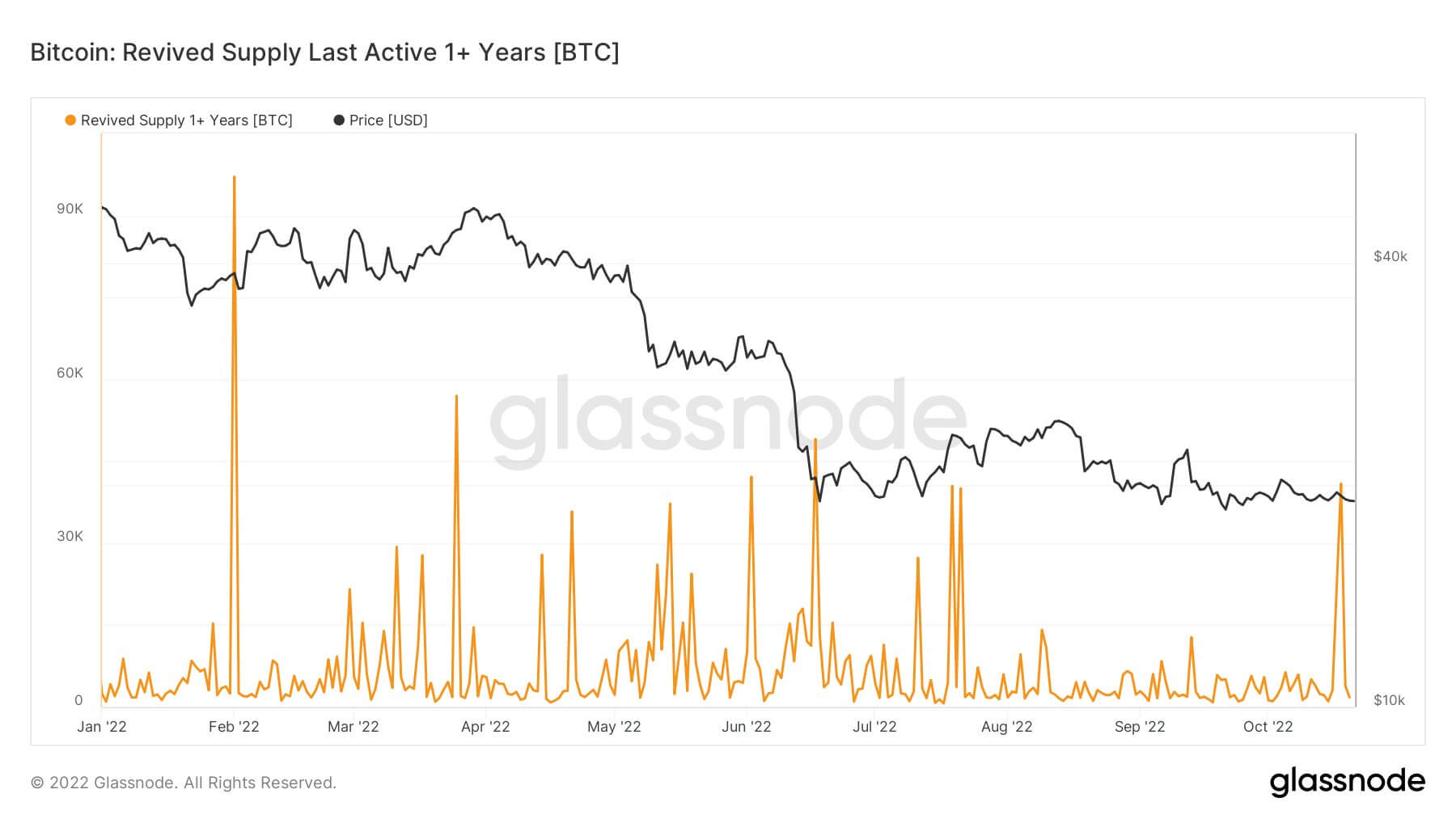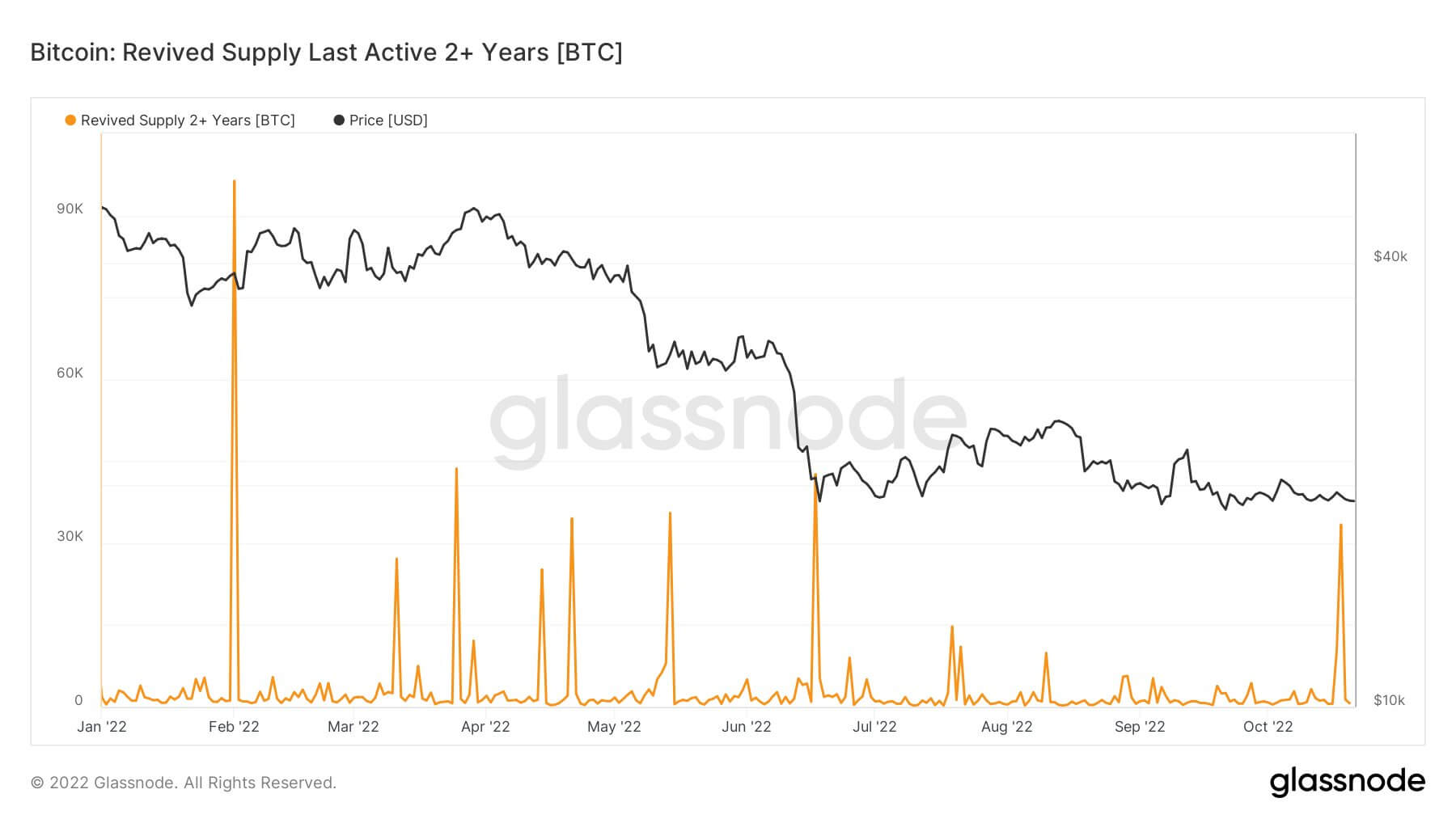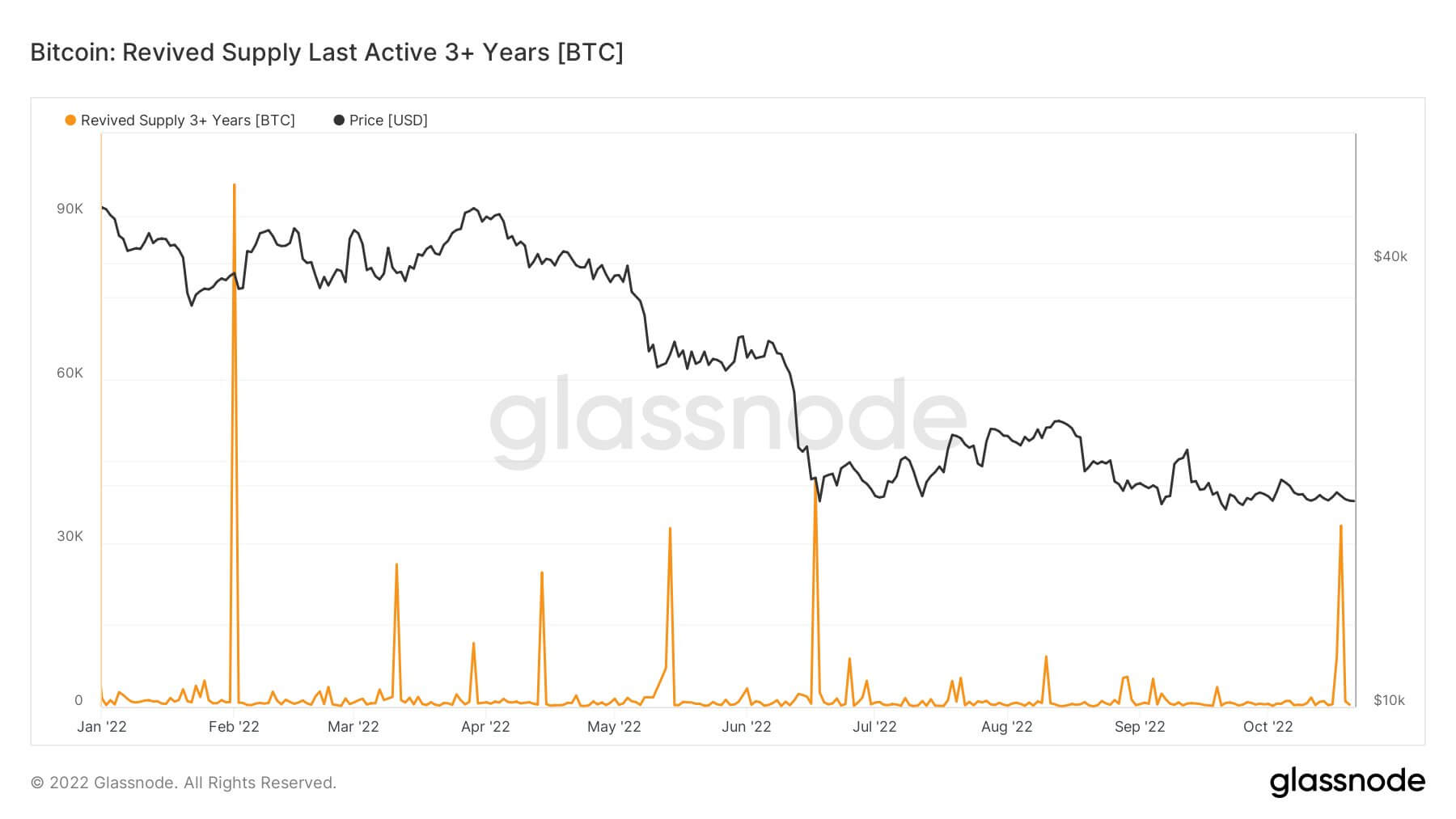 Research: On-chain data shows Bitcoin Long term holders are selling again
Research: On-chain data shows Bitcoin Long term holders are selling again Research: On-chain data shows Bitcoin Long term holders are selling again
According to on-chain data, 1+ year holders had sold 50,000 BTC, 2-year holders sold almost 40,000 BTC, and 3+ year holders sold almost 30,000 BTC as of last week.

Cover art/illustration via CryptoSlate. Image includes combined content which may include AI-generated content.
Bitcoin’s failure to regain lost heights in the last few months may be forcing many long-term holders to sell their BTC holdings at a profit.
On-chain Glassnode data analyzed by CryptoSlate shows that the Revived Supply 1+ Years metric has recently been rising. The Revived Supply 1+ Years metric measures the “total amount of coins that come back into circulation after being untouched for at least a year.”
Long-term holders (LTH) selling is a sign of capitulation and usually happens at the bottom of the market since this cohort of holders (6 months and more) are the strongest. The last time this group sold at the current rate was in June, when Bitcoin dropped to around $17,600.
According to on-chain data, 1+ year holders had sold 50,000 BTC, 2-year holders sold almost 40,000 BTC, and 3+ year holders sold almost 30,000 BTC as of last week.



Over the past couple of months that Bitcoin has traded around the $19,000 range, the asset has been no sudden price movement to break it from its current range. The fact that these holders are selling in a relatively muted market shows that the current price is only profitable for long-term diamond holders.
This shows the sale is a deliberate decision by LTH to take profit while they can since the market does not appear as it would budge. Meanwhile, the lack of volatility presently is bad for price speculators and traders.
The muted volatility has, however, made the hodler base even stronger. For them, it is a welcome development after the extreme volatility of the year’s first seven months.
However, not all LTHs are selling at a profit. CryptoQuant identified many of the recent long-term holders, i.e., those holding between 6 and 18 months, have sold en masse. Since most of the holders in this cohort bought Bitcoin during the bull run, they are selling at a loss.




 CoinGlass
CoinGlass 


 Farside Investors
Farside Investors 

























































































